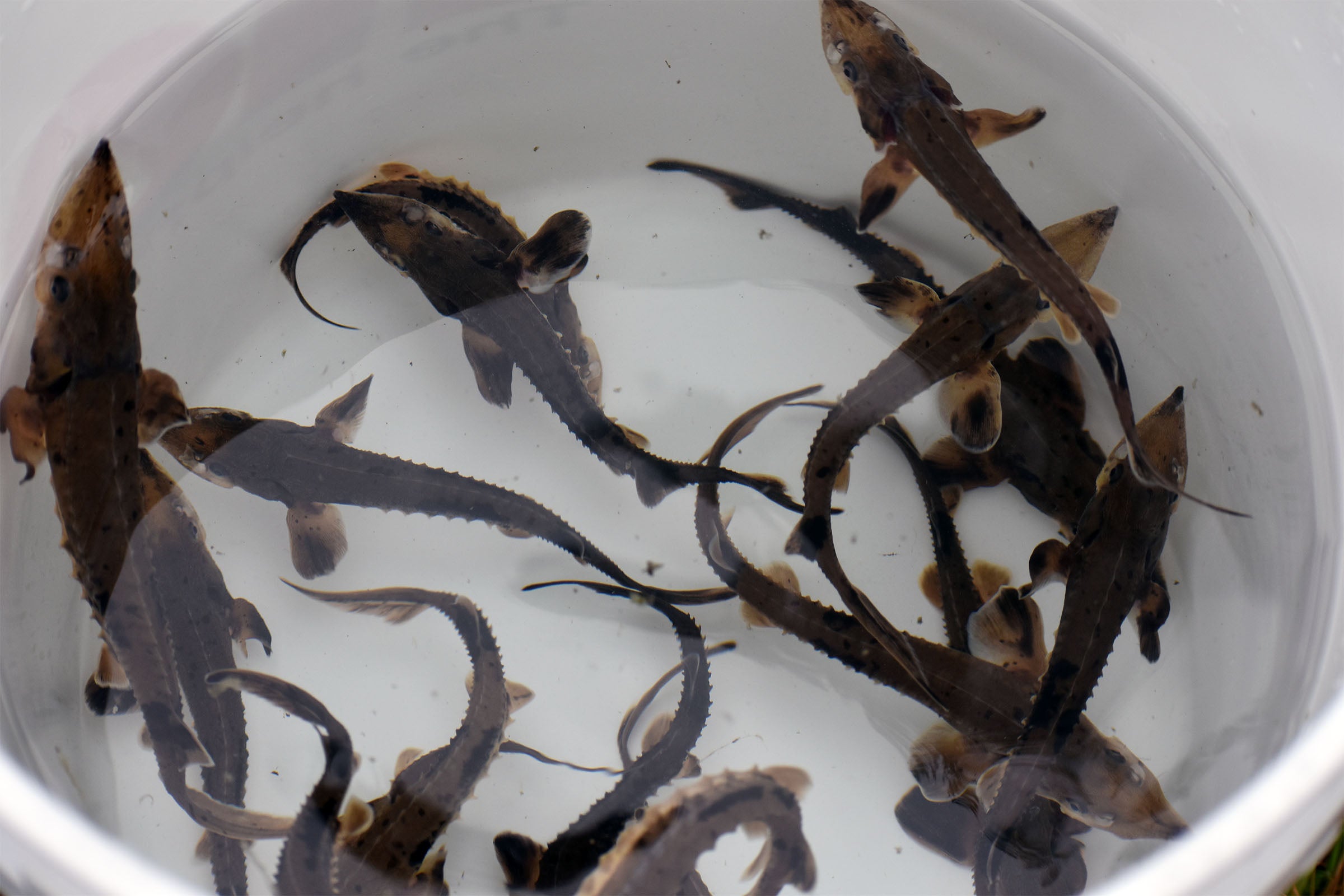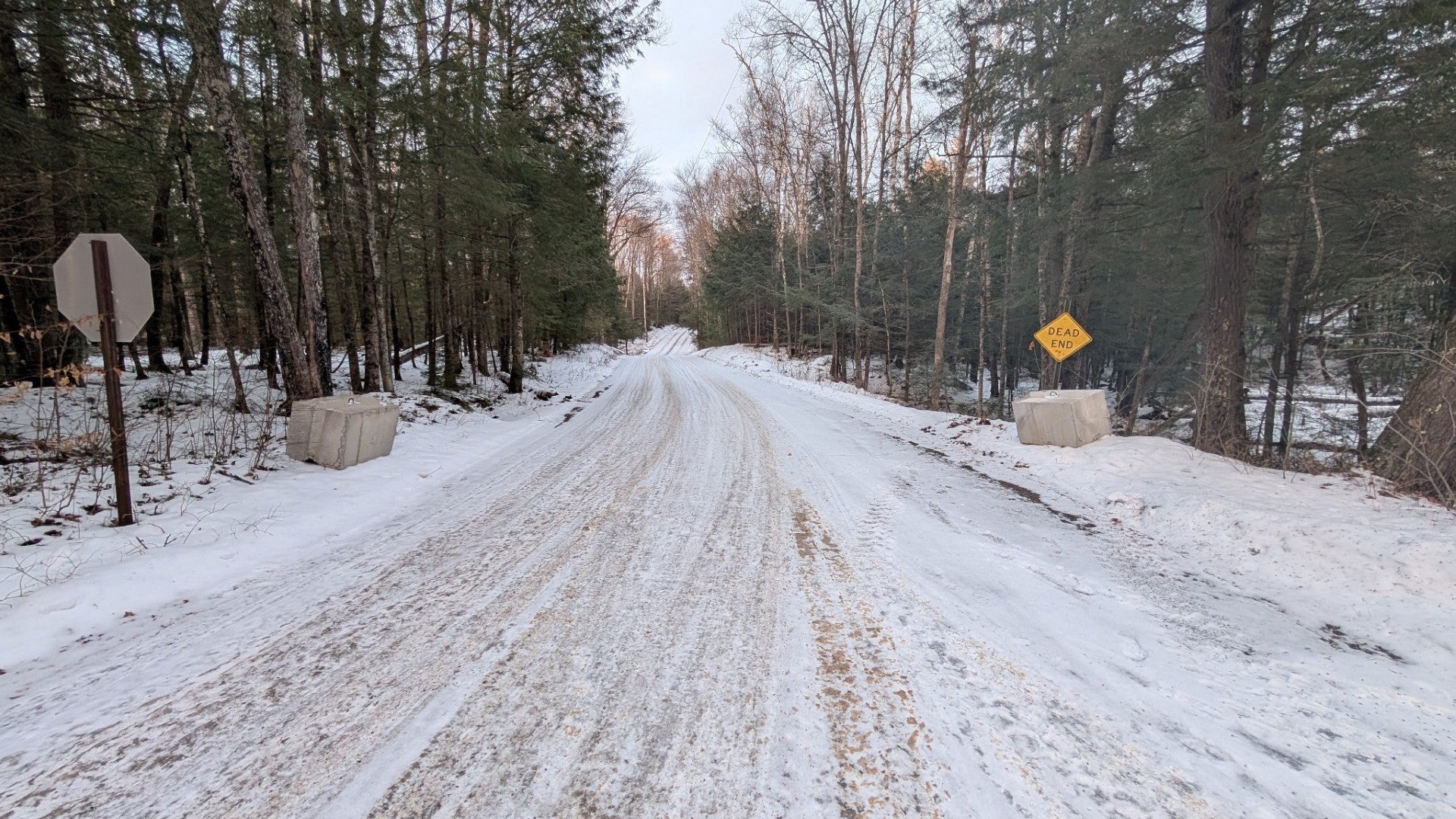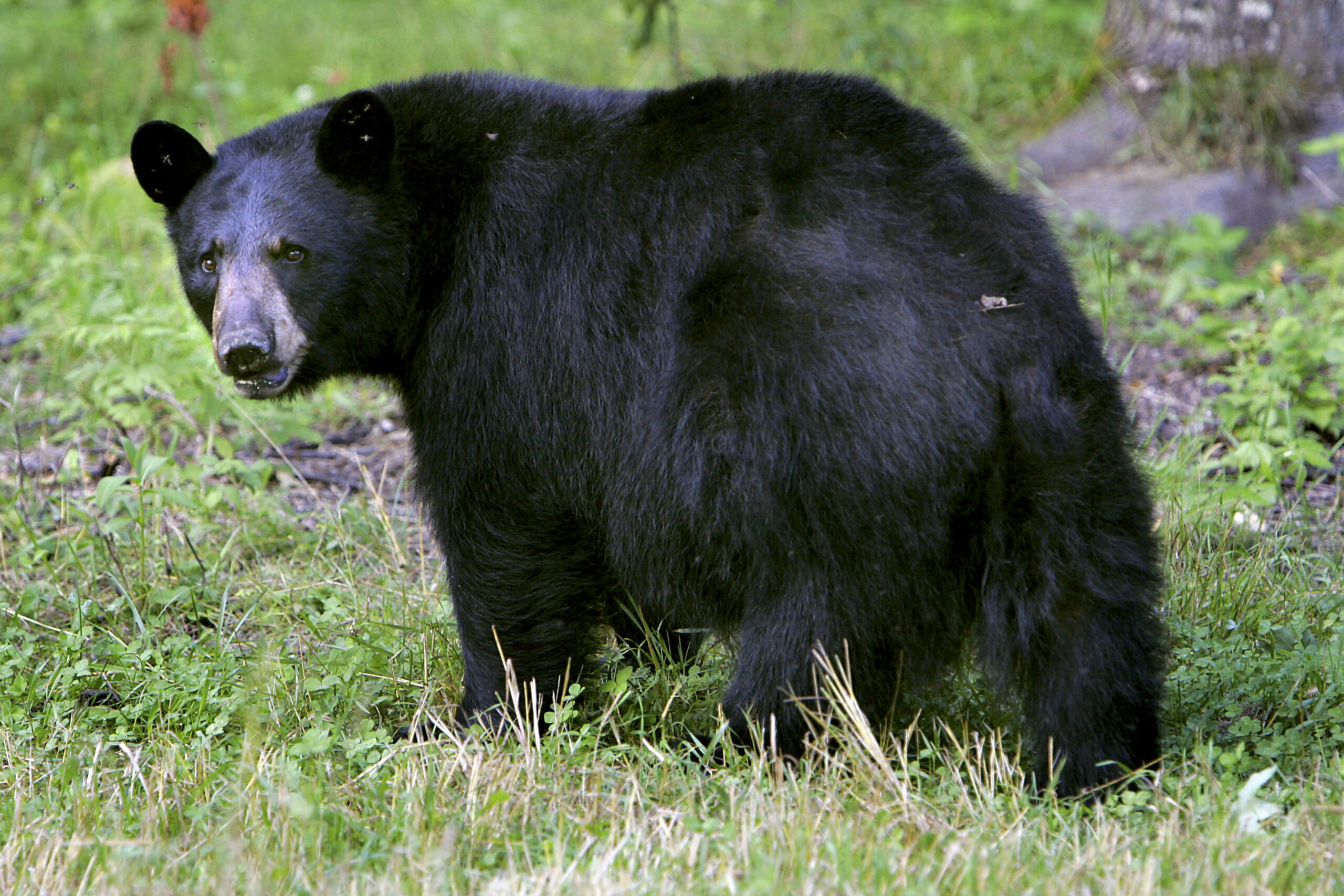More than four decades ago, Mark Duffy’s dad Joe would fish in northern Wisconsin lakes at night, hoping to avoid being seen by game wardens. Duffy, a member of the Red Cliff Band of Lake Superior Chippewa, said his father was a harvester and provider for the community. But, at the time, tribal members were arrested and thrown in jail if they were caught fishing outside of their reservations.
“These people started out there to continue a tradition and a way of life. Using the natural resources that are gifted to us is part of our life,” Duffy said. “And he was one of the people out there doing that and doing it in a way that the state of Wisconsin would have called him a poacher.”
Chippewa or Ojibwe tribes in northern Wisconsin had harvested fish from inland lakes for centuries. Even so, tribal members struggled to practice their rights to hunt, fish and gather on lands and waters outside their reservations.
News with a little more humanity
WPR’s “Wisconsin Today” newsletter keeps you connected to the state you love without feeling overwhelmed. No paywall. No agenda. No corporate filter.
But 40 years ago, that began to change, when the 7th U.S. Circuit Court of Appeals ruled that Lake Superior Chippewa tribes had the right to fish, hunt and gather off-reservation on lands ceded to the federal government under the 1837 and 1842 treaties.
On Wednesday, northern Wisconsin tribes and the Great Lakes Indian Fish and Wildlife Commission, or GLIFWC, celebrated the 40th anniversary of the decision in Hayward.
The ruling became known as the Voigt decision. It came after two brothers, Fred and Mike Tribble, members of the Lac Courte Oreilles Band of Lake Superior Chippewa, decided to test their rights by fishing off-reservation in 1974. They were arrested by state game wardens for harvesting fish without a state license and later found guilty by a Sawyer County judge. The next year, the Lac Courte Oreilles tribe sued the state in federal court, and the case was ultimately decided in their favor.
But not everyone celebrated that decision. In the 1980s, tribal members faced harassment at boat landings in what’s now known as the “Walleye Wars,” as they sought to spearfish walleye on off-reservation lakes. Hundreds of people gathered, and some hurled rocks or racist remarks like “Spear an Indian, Save a Walleye.” Some of them were arrested for disorderly conduct.
At the time, Joe Dan Rose was a representative on the Voigt Intertribal Task Force that recommends harvest and management policy for northern Wisconsin tribes. He recalled tribal fishers would drive to lakes in caravans with GLIFWC wardens because there was safety in numbers. During the protests, some members reported people slashing their tires or trying to run their vehicles off the road. At the landings, Rose said, they made a conscious effort to avoid verbal or physical confrontations with protesters.
“It was a very scary, volatile time,” Rose said. “And in my mind, it’s a miracle that nobody was ever seriously injured or killed because all of the ingredients were there for something really bad to happen.”
State sports anglers feared tribal spearfishing would harm the walleye population, leaving few fish and jeopardizing resorts and businesses that rely on the lakes for their livelihood. In 1989, a federal judge ruled that Chippewa tribes could harvest 100 percent of the safe allowable catch of fish, leading to lower bag limits for sports anglers. Protests at the boat landings grew more intense and prompted hundreds of arrests. A year later, another ruling clarified that tribes would receive a 50 percent share.
Tribes still face battles in hunting quotas, contamination regulation
While there’s been progress since then, Gov. Tony Evers said at the Wednesday celebration that work to strengthen state and tribal relations is nowhere near done.
“It’s our responsibility to uphold these rights and treaties, protect against harvesting harassment, and call out anti-Native hate and racism when we hear it and see it,” Evers said.
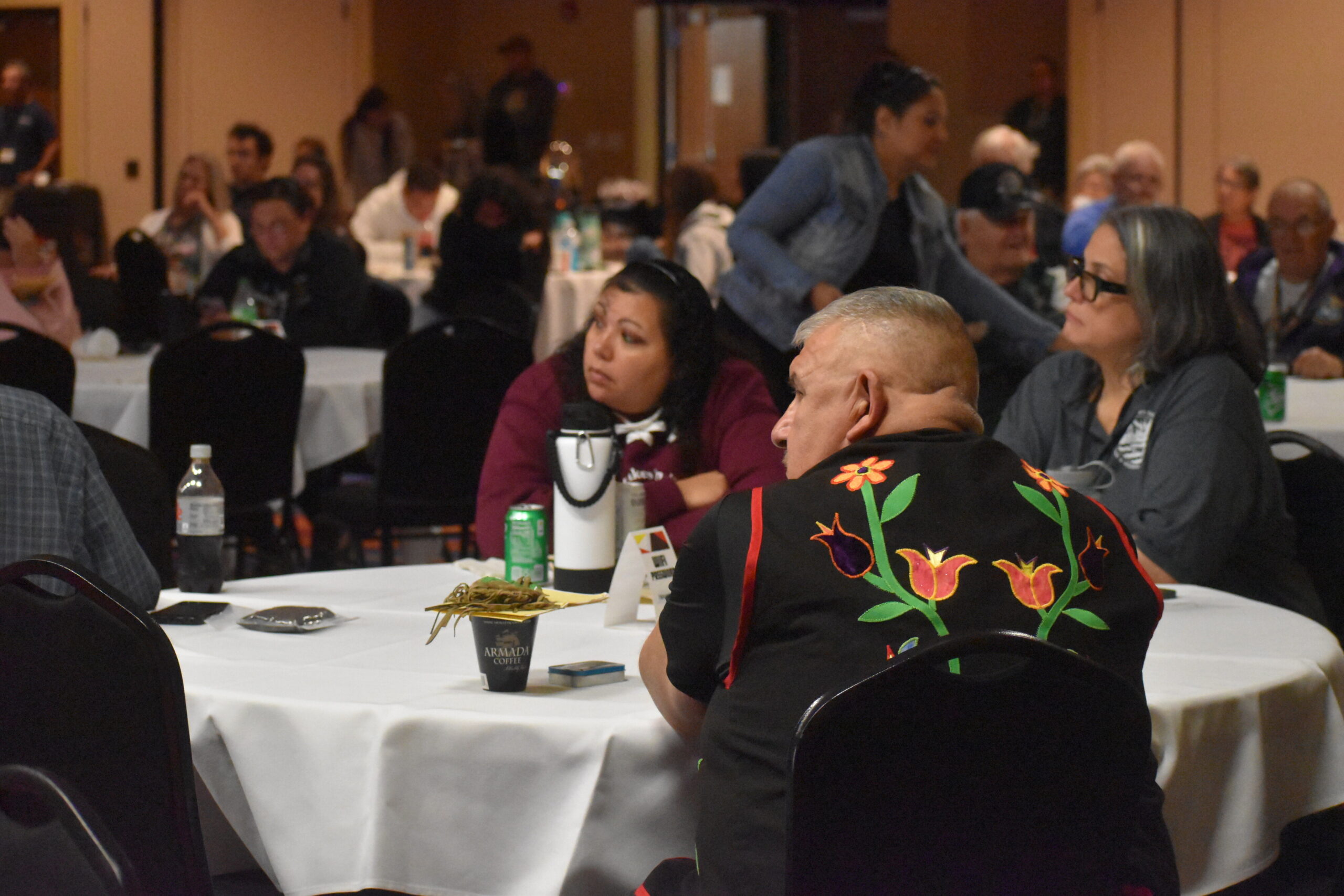
Lac du Flambeau Tribal President John Johnson, Sr., who is chair of the Voigt Intertribal Task Force, said they’re still fighting with state and federal governments to keep their treaty rights in place for their children, grandchildren and the next seven generations.
“But as we do that, we’re trying to do it in a good way with numbers that we take for our fishing, for our hunting, and even the plants in the water and everything else that we protect,” Johnson said.
However, he and other tribal members feel they’re under more scrutiny than state-licensed anglers and hunters in overseeing quotas for fish and other game. Tribal anglers spear around 30,000 to 40,000 walleye on average each year from off-reservation lakes, according to the Wisconsin Department of Natural Resources. At the same time, the DNR estimates state anglers harvest five times as many walleye from those lakes, or 200,000 fish each year.
Meanwhile, Johnson noted state-licensed hunters have also exceeded quotas for bear and wolves. In 2021, state-licensed hunters killed 218 wolves in under three days, consuming the state and tribe’s portion of a 200-wolf quota.
“The wolf hunting, that’s still a challenge,” Red Cliff Tribal Vice Chair Rick Peterson said. “And there’s still just a misconception about what we have as a right.”
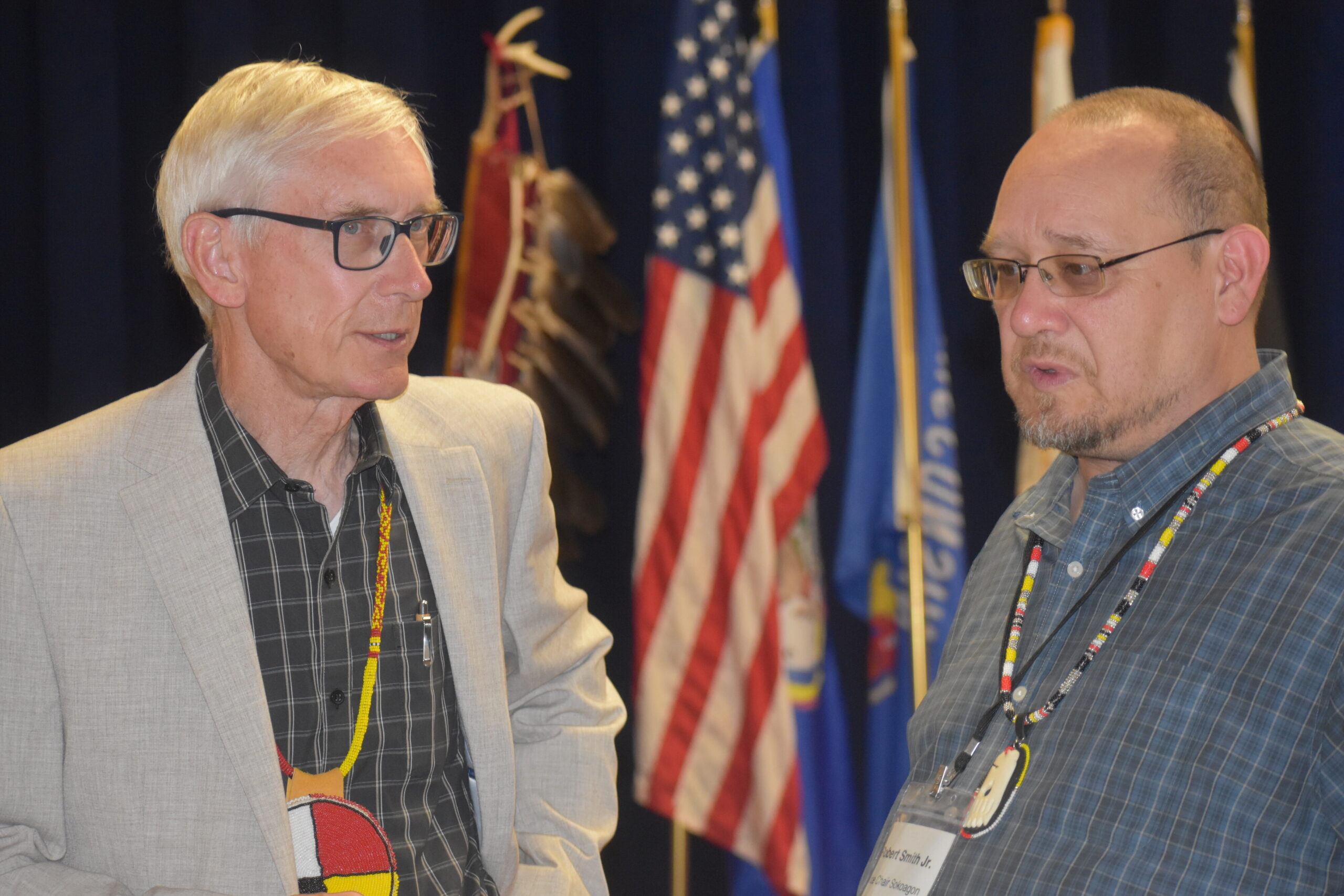
Tribes oppose hunting wolves because they view the animal as a brother and believe their fates are intertwined, but a law signed in 2012 by former Republican Gov. Scott Walker mandates a wolf season when the animal isn’t under federal protection.
Evers acknowledged there have been instances of overharvest, but he said it’s not as simple as saying the DNR will do a better job with management.
“Our first responsibility is to the tribal members and to respect those rights, but then in turn we have a Legislature that may not agree with those positions,” Evers said. “So, we just have to continue to do the best we can under those circumstances.”
Beyond political divides, tribal members say they’re also contending with challenges such as emerging contaminants like PFAS, climate change and invasive species in managing natural resources. For example, the walleye population has declined over time as the species has struggled to naturally reproduce in some lakes. The cold-water species has been threatened by warming waters due to climate change, and the DNR forecasts a near-complete loss of cool lakes by the end of the century.
“The battles that we’re fighting today, and we’ll be fighting in the near future,” said Duffy, a member of the Red Cliff Band of Lake Superior Chippewa, “are much greater than the battles we had to fight to get our treaty rights reaffirmed.”
Wisconsin Public Radio, © Copyright 2025, Board of Regents of the University of Wisconsin System and Wisconsin Educational Communications Board.



